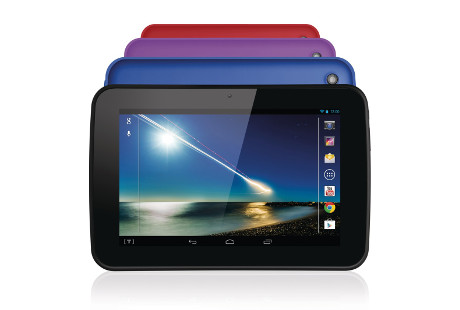UK retail giant Tesco has today unveiled an own-brand tablet device named 'Hudl'.
The 7" Android-based tablet was designed by Tesco itself, the company claims, and its being made by an unnamed Chinese manufacturer.
The device will cost £119 – not the cheapest of 7" tablets – with discounts available to Tesco Clubcard holders. It will be available online and instore.
Despite the fact that Tesco has its own mobile telecommunications division, Tesco Mobile, Hudl will only be available on Wi-Fi, not 3G.
The company pointed to OFCOM figures saying that only one in four UK households own a tablet.
"We feel the time is right for Tesco to help widen tablet ownership and bring the fun, convenience and excitement of tablets to even more customers across the UK," said Tesco's CEO (and former IT director), Philip Clarke. "The digital revolution should be for the many, not for the few.”
Although unusual for a supermarket retailer, the tablet launch is a logical extension of Tesco's digital strategy, which has the apparent goal of collecting as much information about customers as possible.
Earlier this year, the company launched Clubcard TV, an on-demand video streaming service that is free to loyalty card holders. The service is supported by ads that are targeted according to the customers' buying habits.
Tesco said Hudl user will enjoy "instant access to Tesco's full range of digital services", including Clubcard TV and online shopping and banking, from a "convenient" dedicated launcher button.
Other retailers have pursued this kind of mobile device strategy, with mixed success. Online retailer Amazon.com's Kindle range of e-readers and tablets is expected to bring in an estimated $4.5 billion in revenue for the company this year, according to a recent research note from investment bank Morgan Stanley – and that does not include the extra e-book sales that the devices may have led to.
A bid to rival the Kindle by US bookstore chain Barnes and Noble proved less successful however. In June, the company announced that it would cease manufacture of its Nook e-readers, having made a $475 million loss last year.
WHSmith, meanwhile, partnered with Canadian company Kobo to provide e-readers and e-books to its customers. Speaking at a conference earlier this year, WHSmith CEO Stephen Clarke said the Kobo had contributed significantly to the company's 5% profit growth for its most recent financial year.










